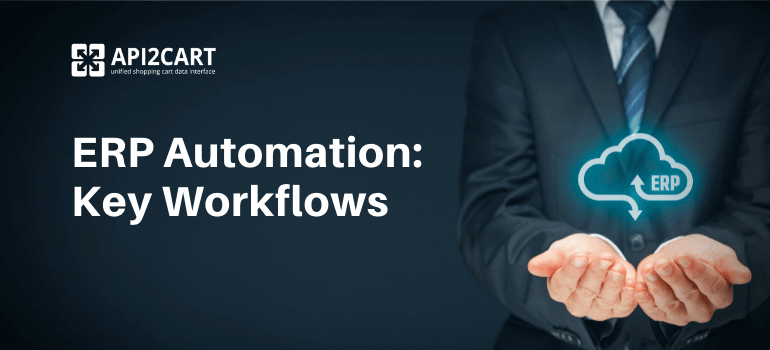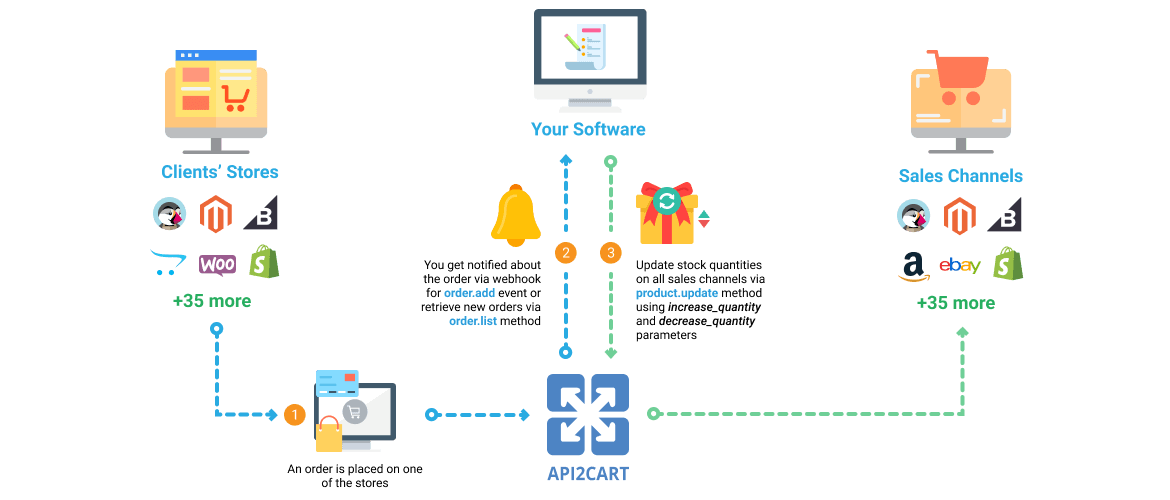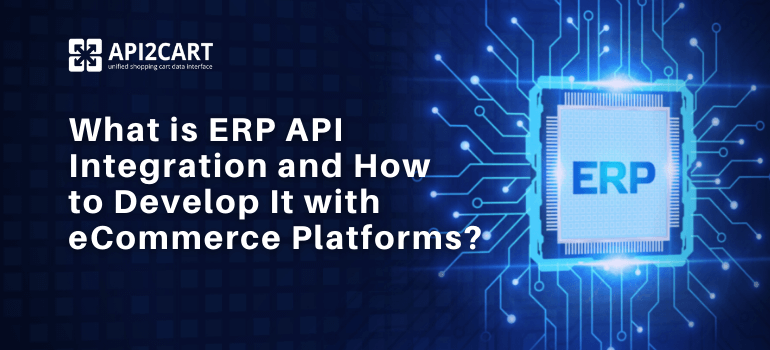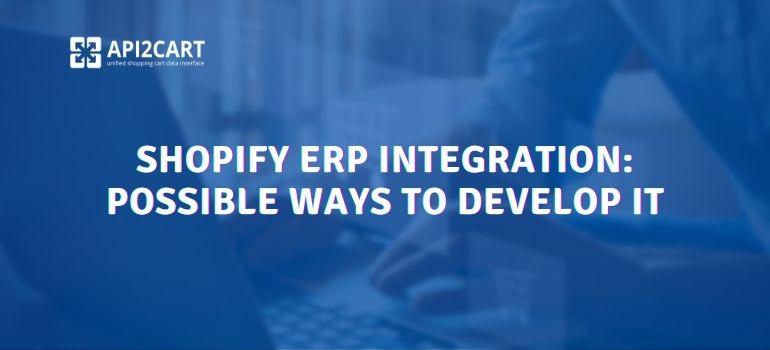
As an ERP software provider or developer, it becomes mandatory to do everything in your power to grow your business and outsmart your competitors. The easiest way to do that is by expanding your ERP services and automating them, thus enabling your clients to conduct their operations better.
Online store owners can definitely make the most out of your ERP solution to reduce manual entry errors, sync their data easier using a centralized system, automate tax compliance and other processes, enhance business reporting, and improve their flexibility.
To better understand the ERP automation process, we’ll dive deeper into its main features, key workflows, and the importance of integrations with eCommerce platforms.
ERP System: Main Features
eCommerce ERP systems are considered extremely useful for any company that wants to manage the information inside their business and improve processes, such as monitoring inventory levels, optimizing shipping, processing orders, or providing comprehensive reports.
ERP systems are used by medium and large-sized businesses to save time when entering information or accessing info, share information between departments with ease, make effective forecasts, increase productivity, improve automation, reduce operations and administrative costs, and enable companies to access their information database from anywhere.
Main Types of ERP Workflows
ERP systems provide complex features for a wide range of departments within a company, including manufacturing, finance, marketing, sales, operations, procurement, or supply chain. As a result, ERP software can equip a business with efficiency, intelligence, and a higher degree of visibility across their departments and operations.
In the eCommerce industry, ERP companies such as yours can offer a wide range of functions that allow e-store owners to easily update stocks, sync inventory, process orders, and automate shipping operations.
Let’s take a closer look at the main types of ERP workflows presented in the eCommerce sphere:
- Workflow #1: ERP systems can process online store orders
- Workflow #2: ERP systems can sync inventory across multiple sales channels
- Workflow #3: ERP systems can automate shipping operations
- Workflow #4: ERP systems can offer comprehensive reporting
An advanced ERP system has unrestricted access to all details related to order data. By automating the capturing of customer order data, the ERP solution can automate sales, along with order processing and shipping. This enables e-shop owners to save time choosing the correct discount combination and automatically generating purchase orders.
Another common workflow involves the ability to access order and product data to maintain a perfectly accurate inventory. Because labeling available items as “out-of-stock” and unavailable items as being “in-stock” is very bad for any business, this ERP workflow could prove to be a gold mine for e-store owners that want never to lose any potential customer.
Because ERP software have the capability to update stock levels in real-time, the merchants can easily offload most of their inventory management tasks right to their suppliers. In turn, the suppliers can use the info provided by the ERP system to inform the customers about the order delivery date and status, thus taking this burden off of the shoulders of eCommerce owners.
A reliable ERP solution can offer useful reports to the e-merchants, which usually contain info about orders, statuses, shipments, and stocks.
The Role of eCommerce Integration in ERP Automation
For a seamless ERP automation process, experts recommend setting up multiple eCommerce integrations. In other words, you have to connect your ERP solution to the most important shopping cart solutions available on the market.
The integration between your system and various shopping platforms allows your business not just to gain access to order data, product info, or inventory levels, but also to perform your main features and offer retailers the benefits of ERP systems: automation, business reporting enhancement, easy data sync, and multichannel flexibility.
Integrating your ERP software with multiple shopping platforms can also give you an unfair advantage over your competitors. It enables you to increase your number of prospective customers, expand your market share and grow your profits.
One of the easiest ways to integrate your ERP solution with several shopping platforms at once is by using API2Cart. This service can help you avoid all integration difficulties and easily gain access to all the data needed to run your software.
How API2Cart Helps ERP Solutions to Perform Their Functions
For a successful ERP integration with dozens of platforms, you can rely on API2Cart. Our service has everything you need for seamless integration with 40+ marketplaces and shopping platforms. We support the connection with Magento, Shopify, WooCommerce, Amazon, eBay, etc.
With API2Cart API methods, you can perform the following functions of your business:
- Retrieve complete lists of products, along with images, descriptions, prices, variants, categories, and attributions
- Sync inventory across all storefronts
- Keep track of shipping processes
- Get lists of orders, along with specific order details
- Create detailed reports for proper data analytics
The way API2Cart works is pretty simple. For instance, to sync inventory across all sales channels, we connect with your clients’ stores and all essential sales channels.

Once an order is placed on one of your clients’ stores, we send you a notification using the webhook for order.add event or can provide you with a list of new orders with the help of order.list method. The updating of stock quantities is possible with the usage of product.update method provided by API2Cart.
As you can notice, API2Cart has a comprehensive list of API methods for enabling ERP solution providers to automate their key workflows. You can find out more about our specific ERP automation services by getting in contact with our team.



